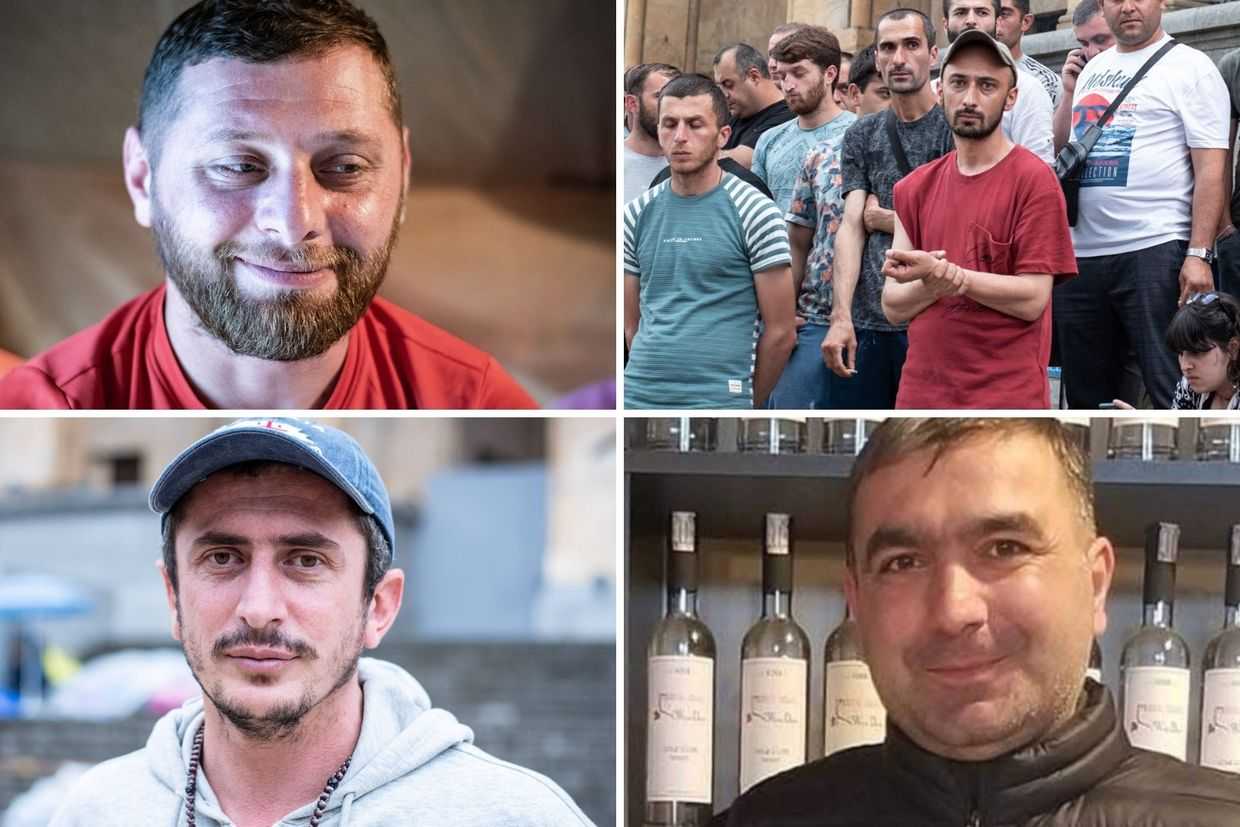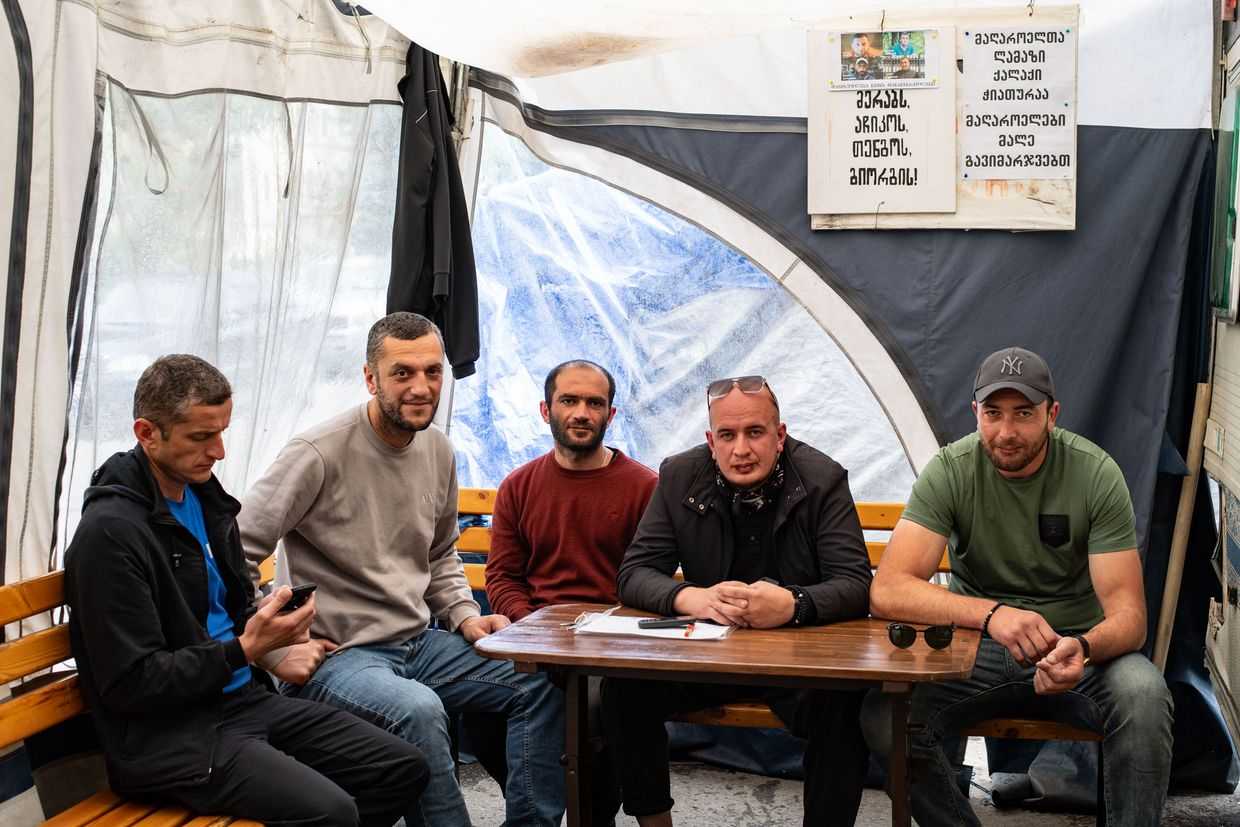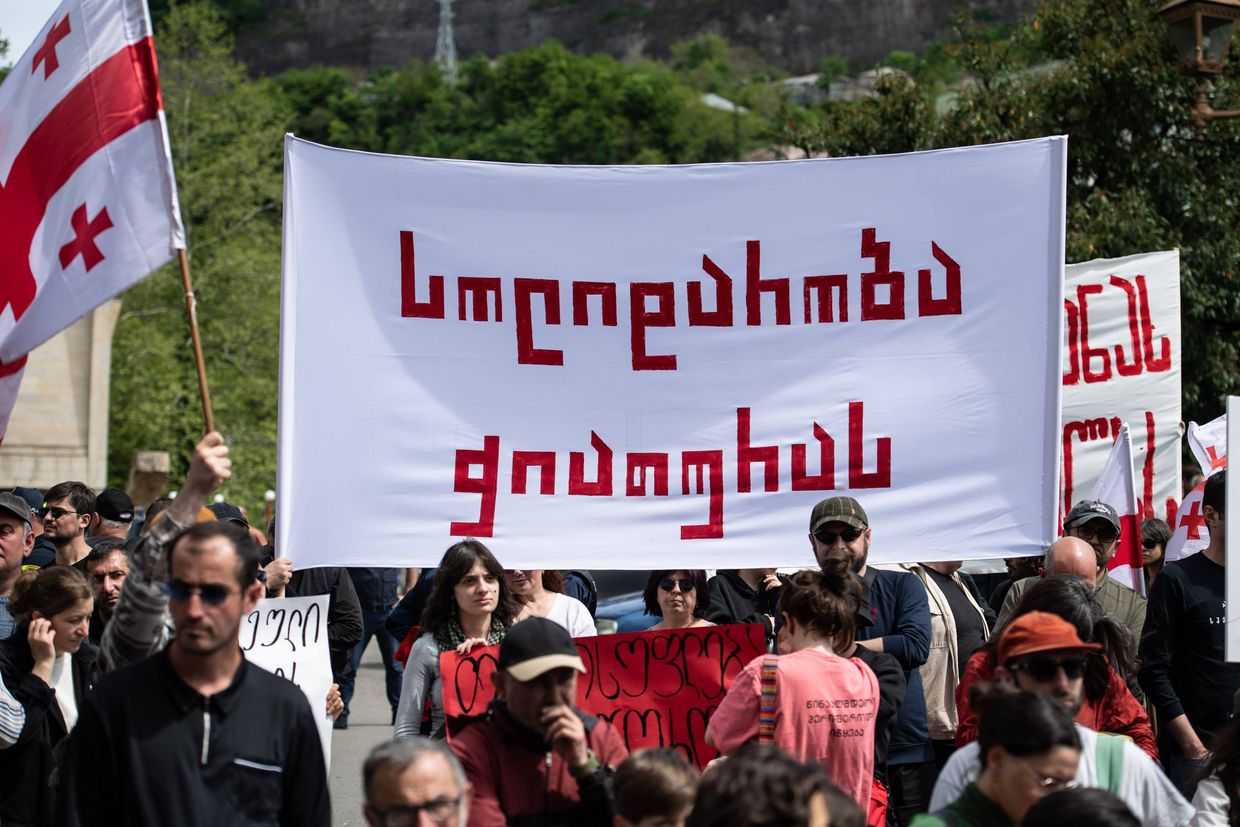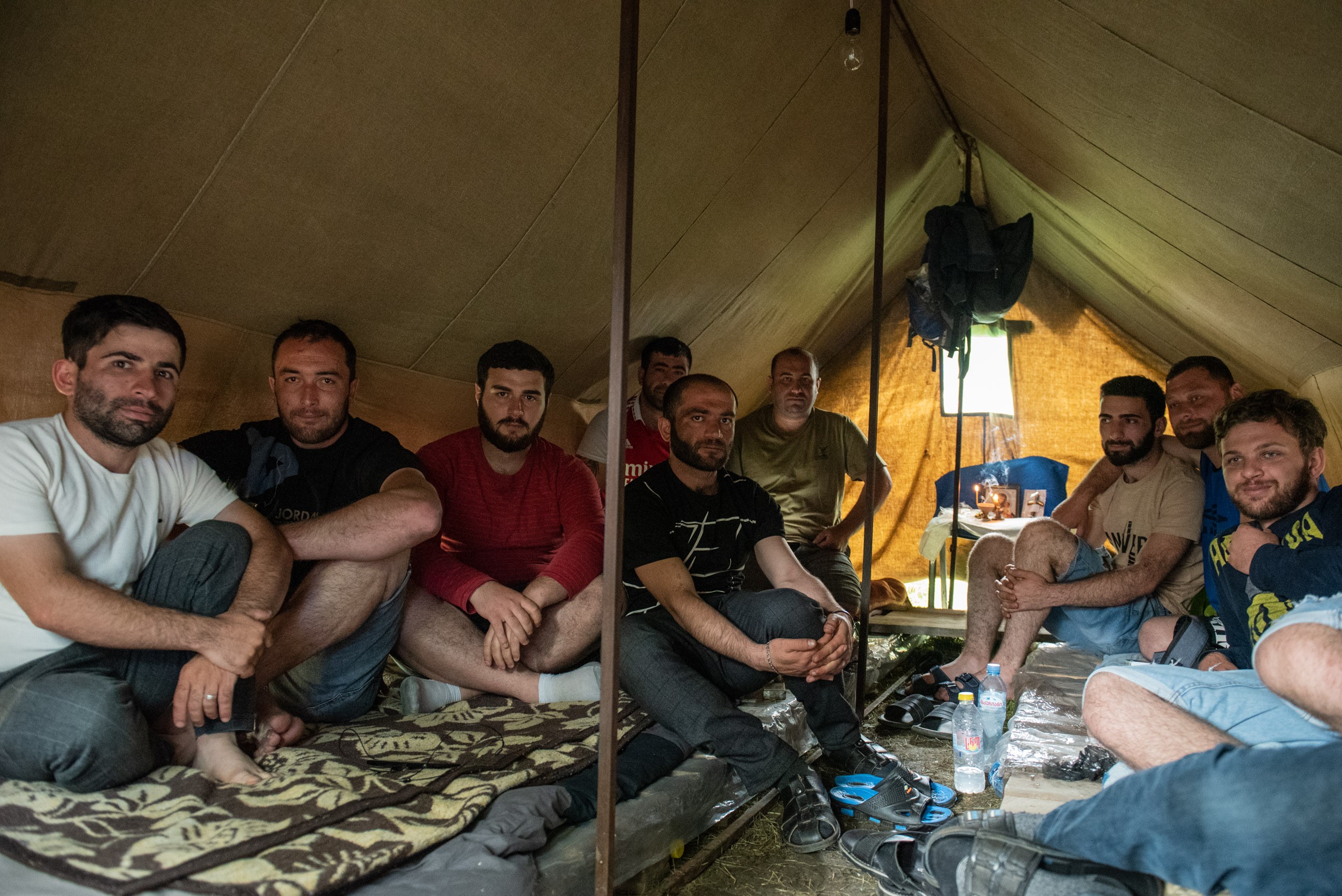
Warning: this article contains images that some may find disturbing.
In early February, Georgian Manganese, the mining company that controls the manganese mines in the central Georgian town of Chiatura, announced that the mines were being all but suspended due to a global slump in the ferroalloy market.
After spending three months on 60% pay, workers began to be called back to work in late May where they were introduced to ‘optimised’ work plans — they would have to extract 40% more ore or face shrinking wages.
Labelling the demands as both impossible and inhuman, the miners went on strike.
[Read more on OC Media: ‘Thousands’ of miners go on strike in Chiatura]
Monday marked eight days since 10 of those striking workers went on hunger strike. OC Media spoke to each of them and asked why they thought such an extreme measure was necessary.
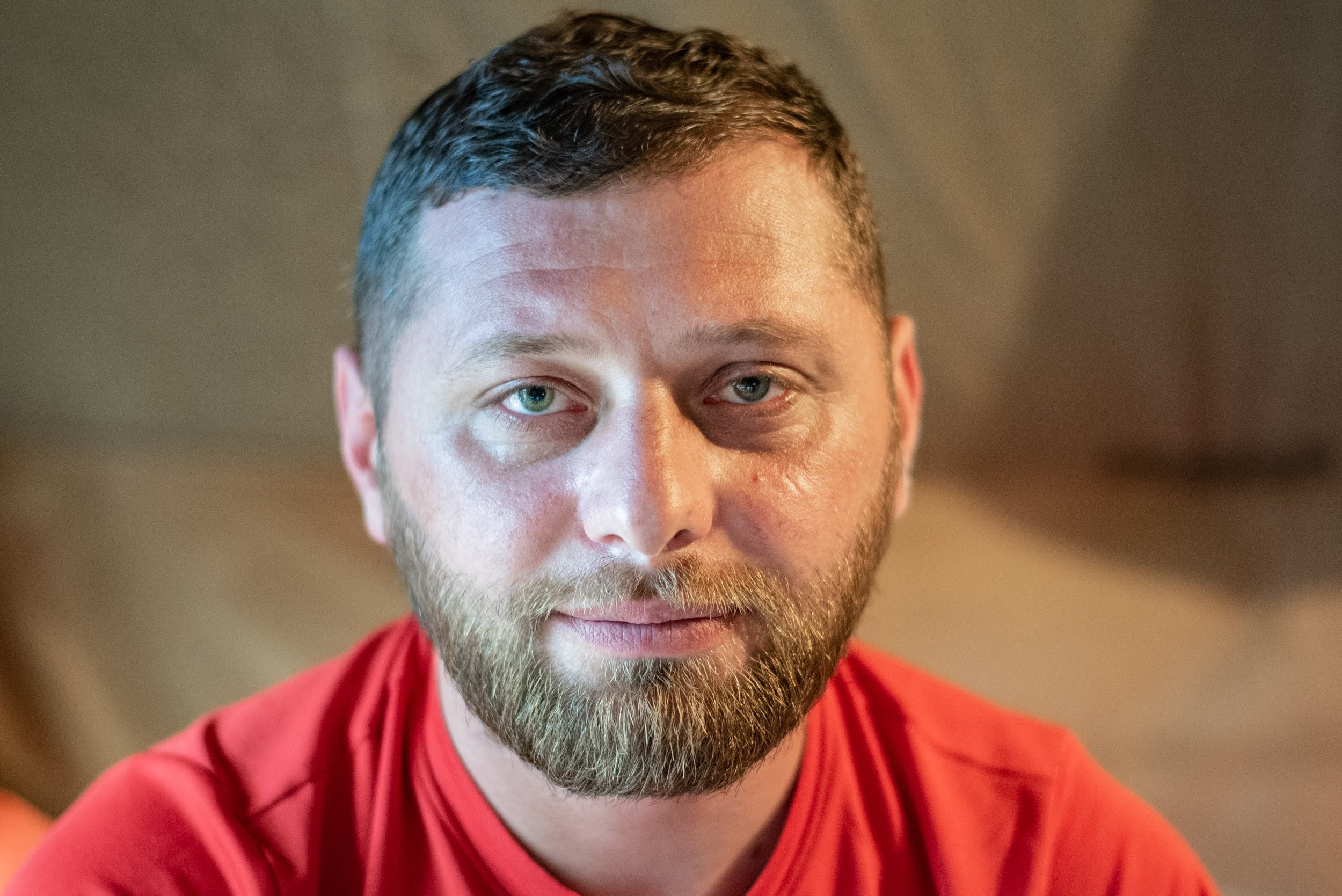
‘It’s one of the most difficult and dangerous professions. It poses a danger to our lives.’
‘What I hate the most here is the attitude towards us. They are very cynical. When you have a complaint, they reply in a cynical way. We asked them to fulfil the minimal requirements, things they are already obliged to do, but they refused, which is why we started this strike. We won’t let them humiliate us’.
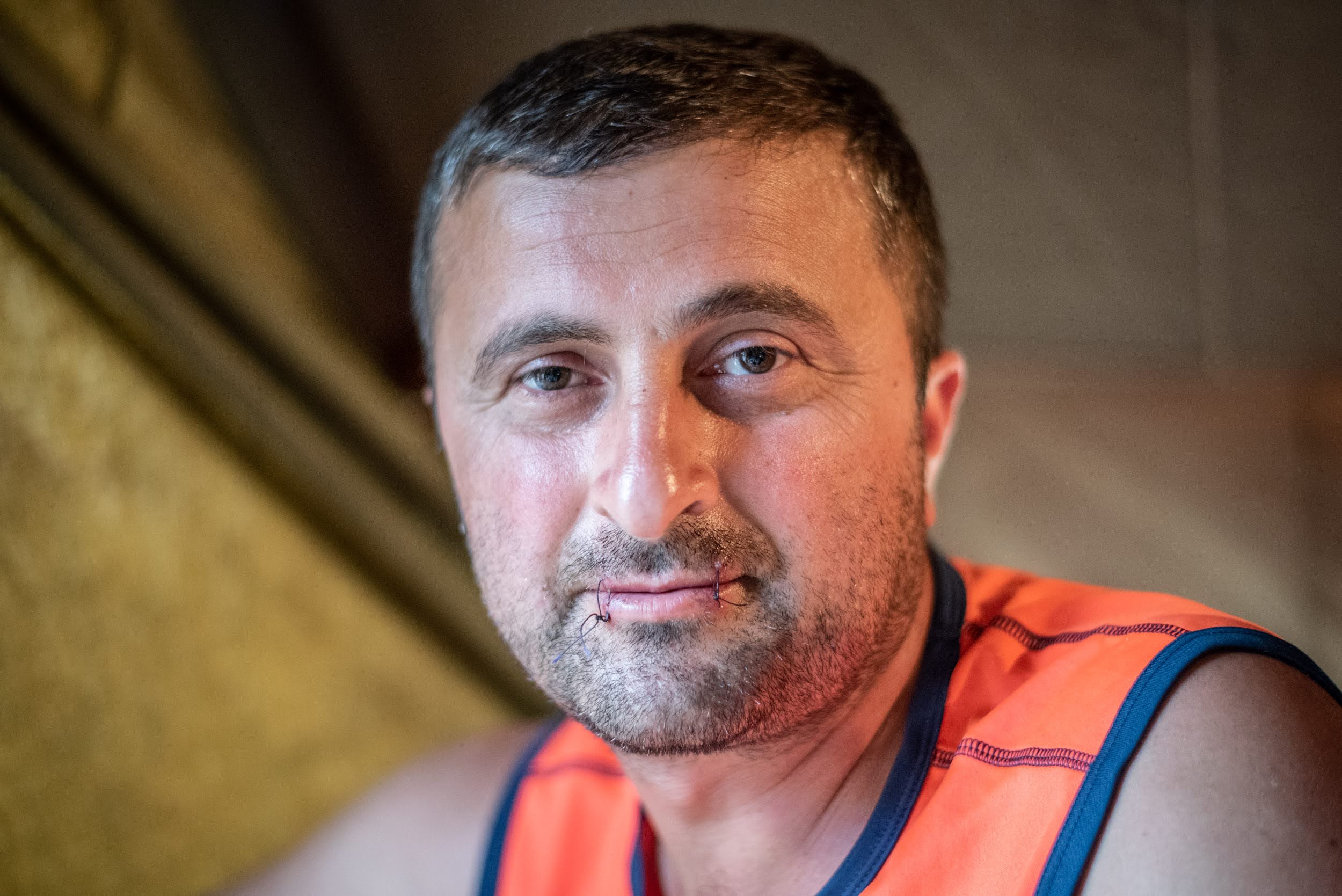
‘It’s a difficult profession and requires a normal salary. We really deserve it. We also demand to be valued as human beings; that [Georgian Manganese] value what we do, each of us.’
‘I’ve spoken a lot to them; I attended five meetings with them and when I left the fifth meeting, I had the feeling that I couldn’t make them hear what we had to say, as if I couldn’t prove our truth. Which is why I decided to sew my lips shut, as it doesn’t matter if I have my mouth open or shut.’
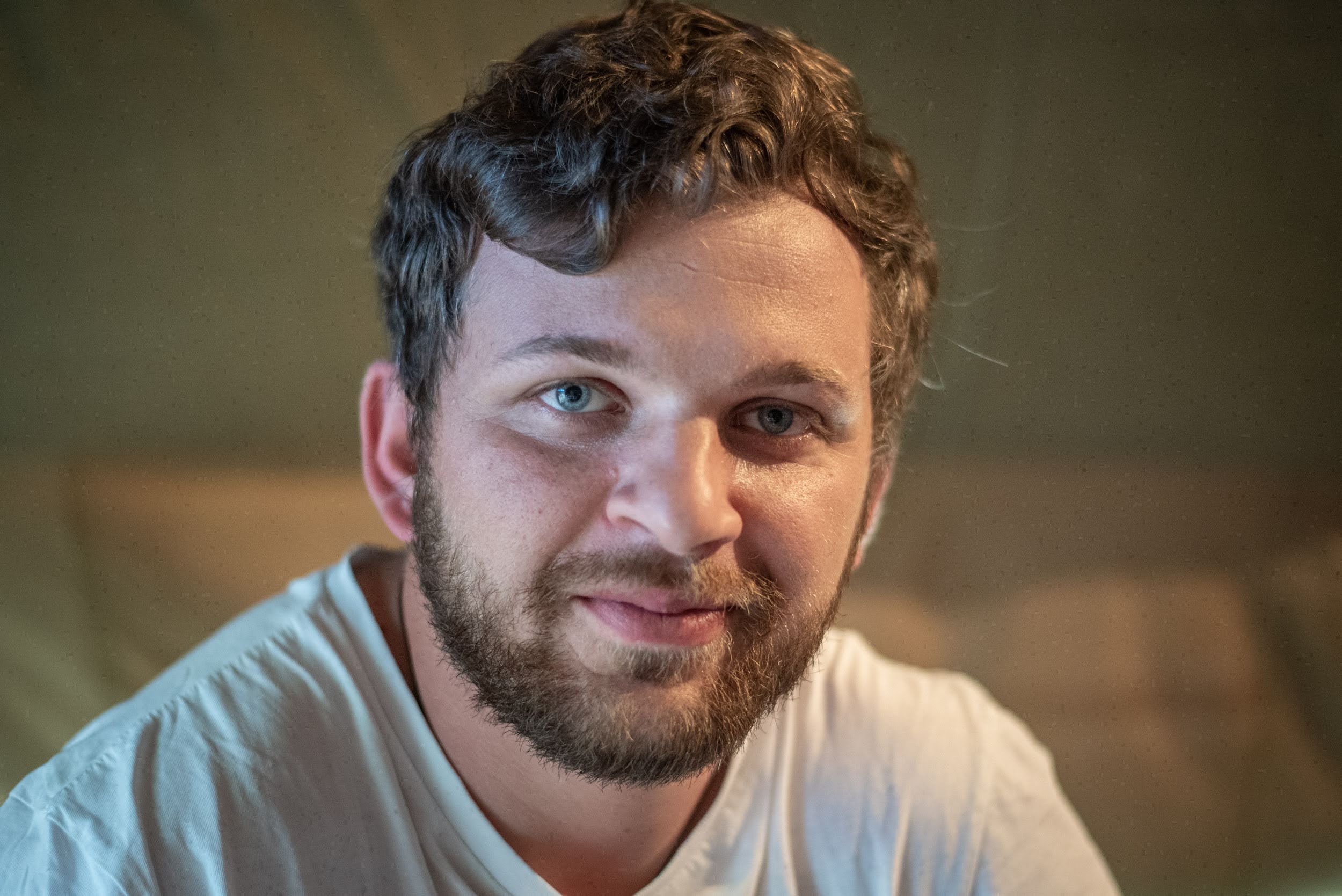
‘I am a tractor driver working in horrible conditions. The air we breathe is terrible. The smoke coming from the tractor adds to it. We ask them to treat us like normal human beings and to have honourable working conditions.’
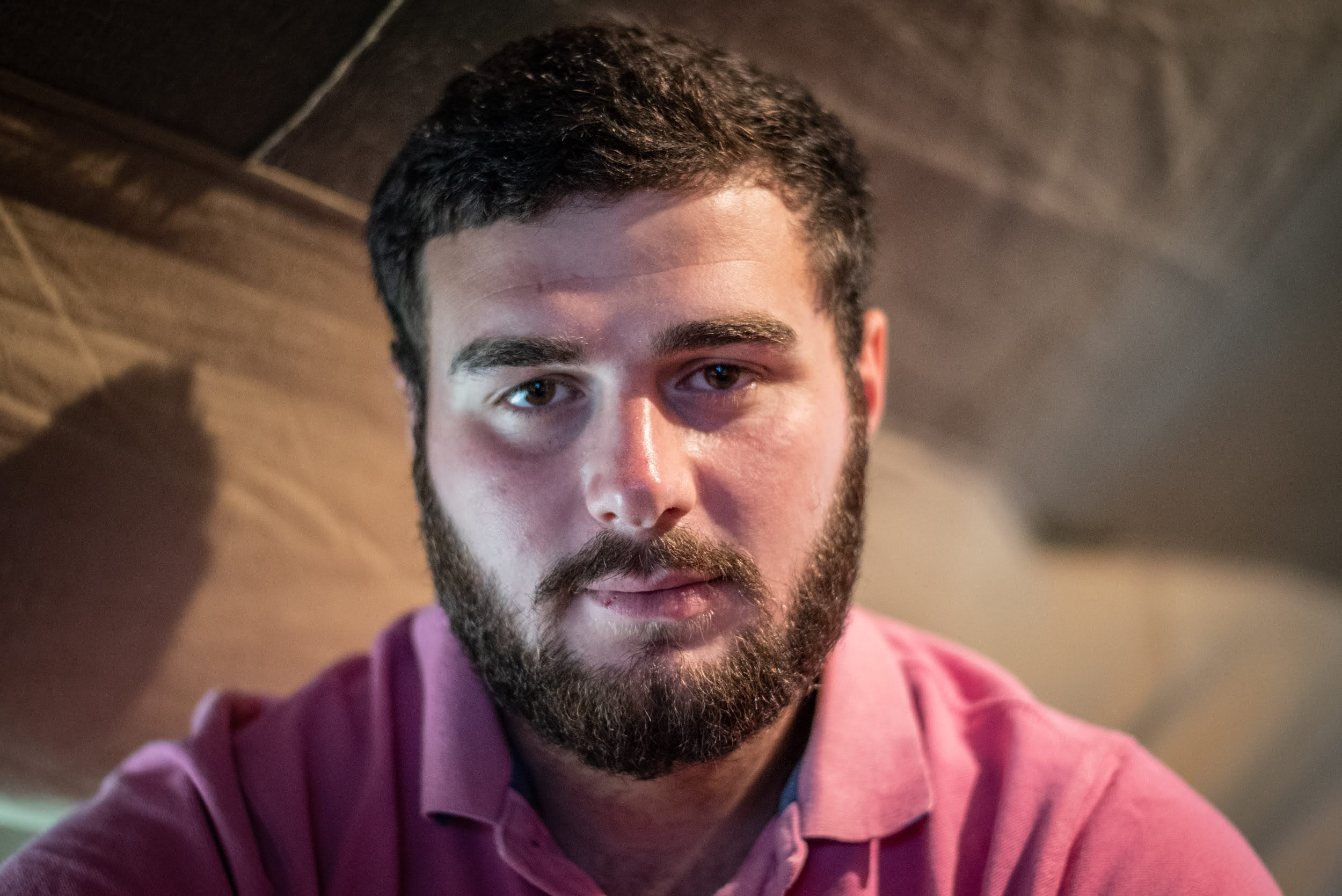
‘It’s impossible to breathe normally where we work. We demand increased pay, there is no other way.’
‘The company put us in such a difficult situation. The whole town is with us, you see. We will do everything to achieve our goal, to have honourable pay and be treated as normal people, not slaves. I can’t add anything else.’
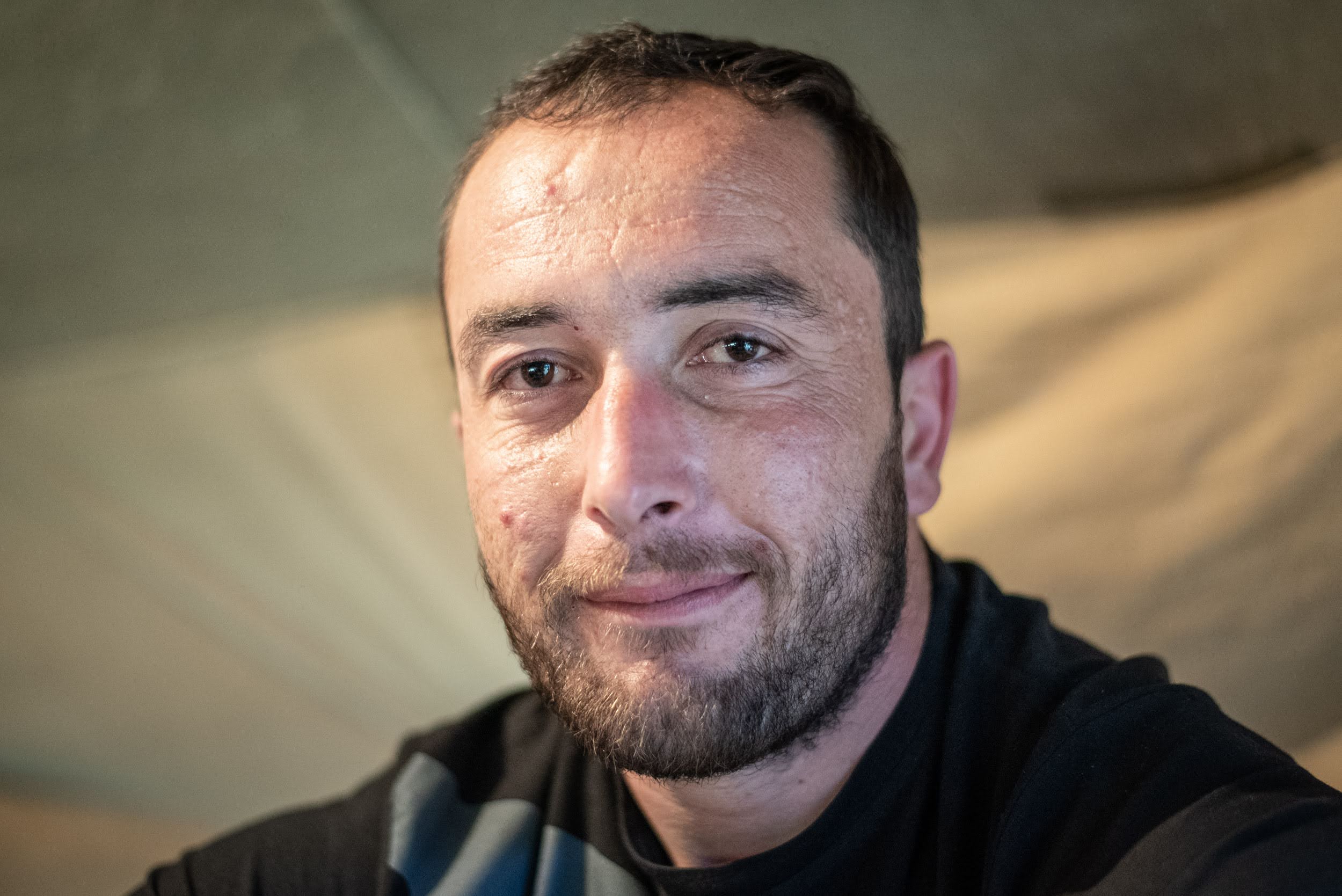
‘I’ve switched mines quite a few times. Worked 7-hour shifts and then switched to 12-hour shifts. I went through quite a torture here for peanuts.’
‘When I started, my salary was under ₾600 ($230) [per month]. Then we had protests, they satisfied some of our demands. Now we are in the same situation again. We demand increased pay.’
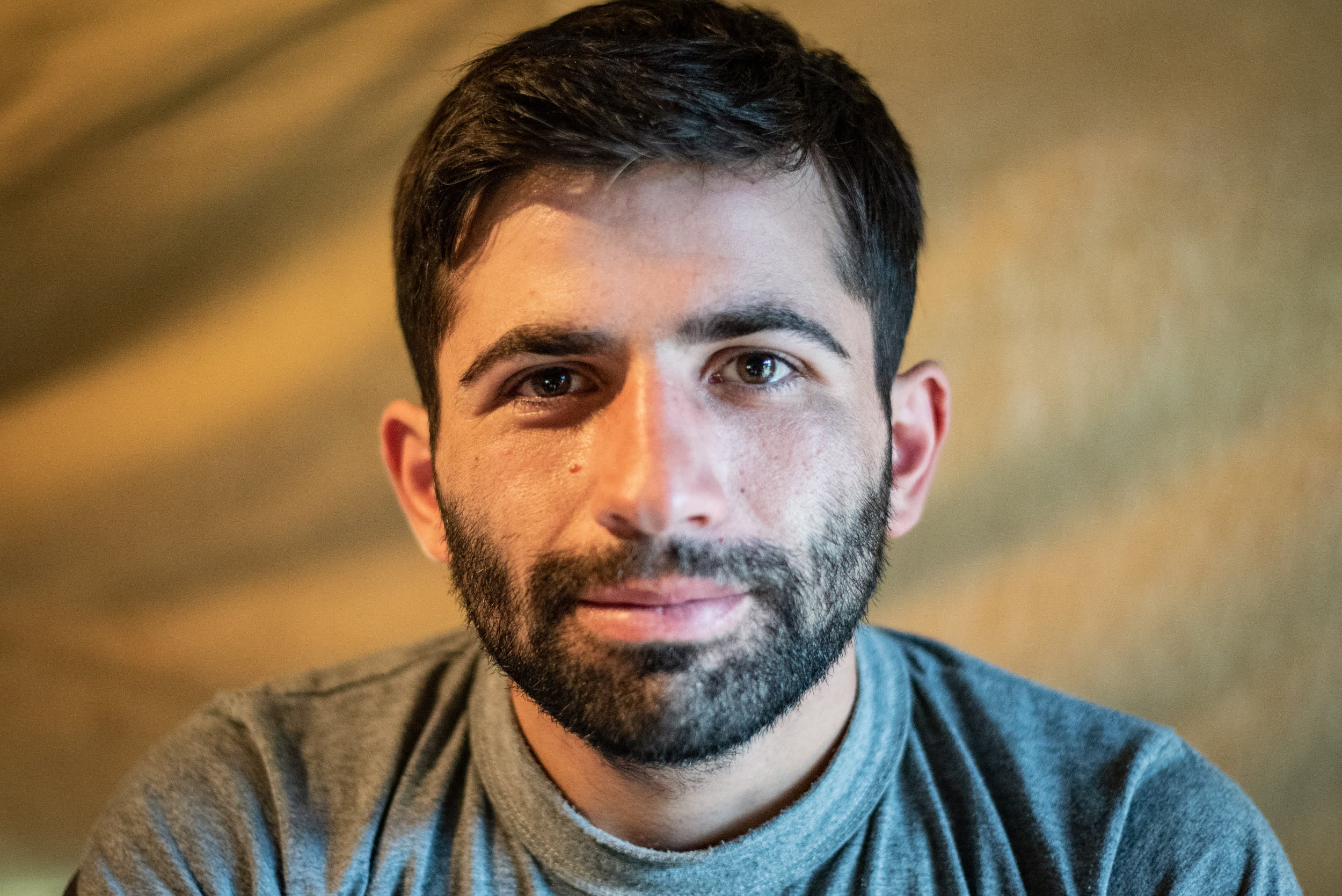
‘I was responsible for accepting and processing timber. My salary was ₾360–₾400 ($140–$150) [per month]. Then because of such low pay, I left and searched for other jobs. Eventually, I returned. For the past 4 years, I have been an assistant to a tunnel digger.’
‘We want normal working conditions, to have enough pay for our work, which would be enough to feed the family.’
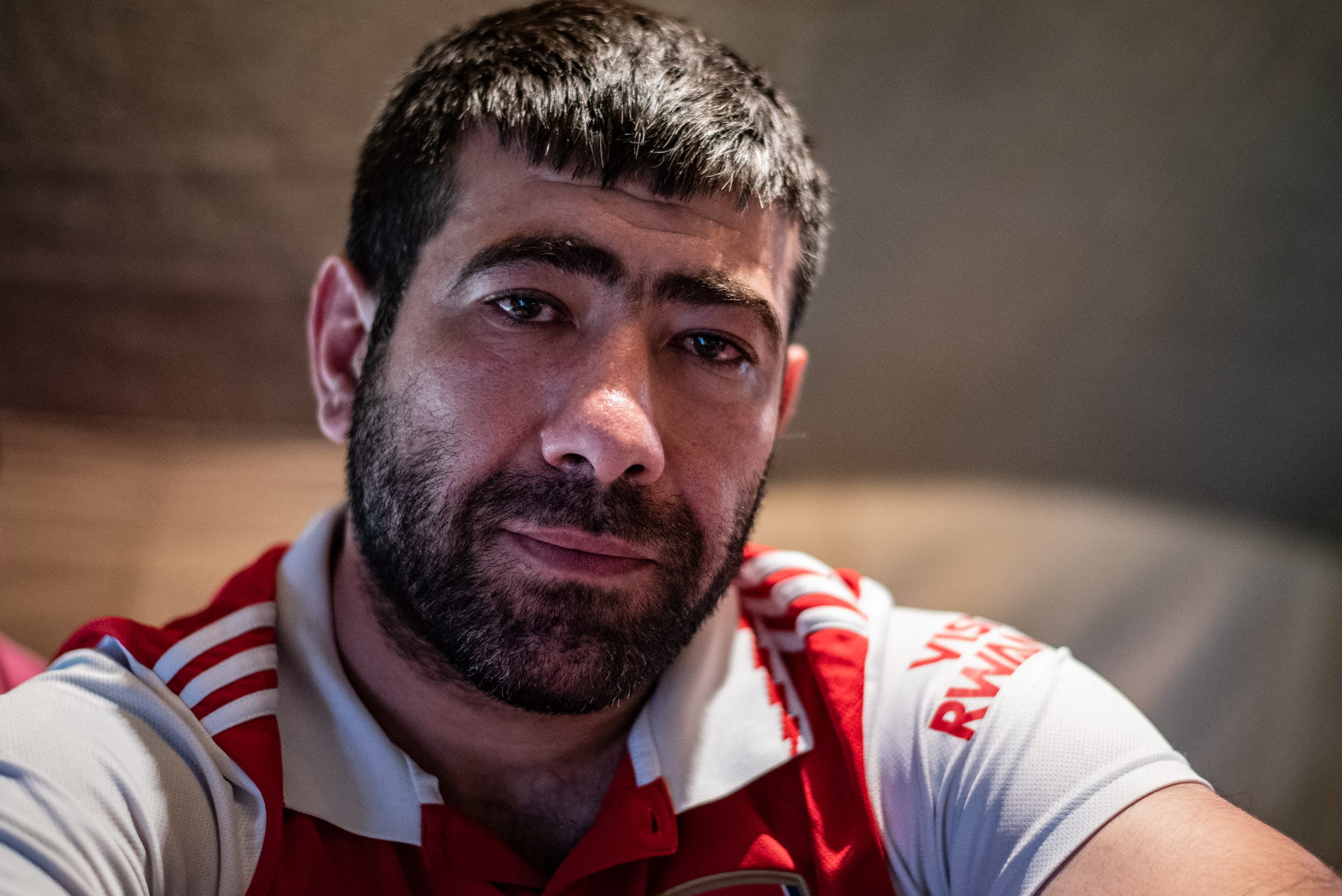
‘The reason for the protest is the following: when we go into the mine, we don’t know if we will leave it alive. No one knows. When we leave our families for work, they don’t know if we are going to return — they worry about us.’
‘We aren’t paid enough to support our families; to buy medicines. My children are growing up here, my friends’ children are growing up here. When I take my child to visit someone, they should not be staring at other kids and be jealous of the sweets and toys they have. I should be able to afford to buy toys and candy for them. This is why I am here.’
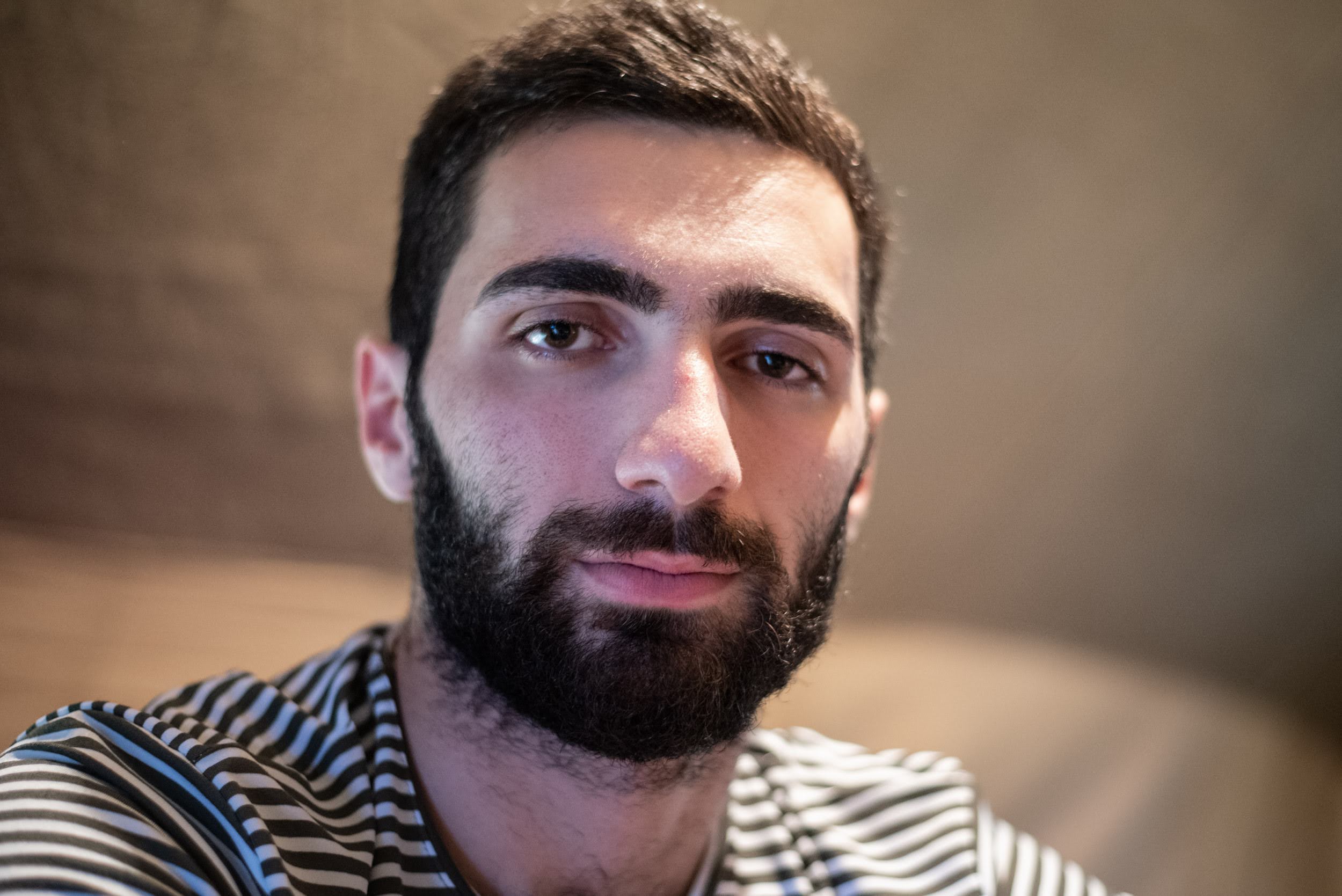
‘I am an assistant to a tractor driver. We have terrible conditions. There is no proper ventilation. As he mentioned, the exhaust from the tractor is unbearable, it affects our bodies. I hope the situation improves soon.’
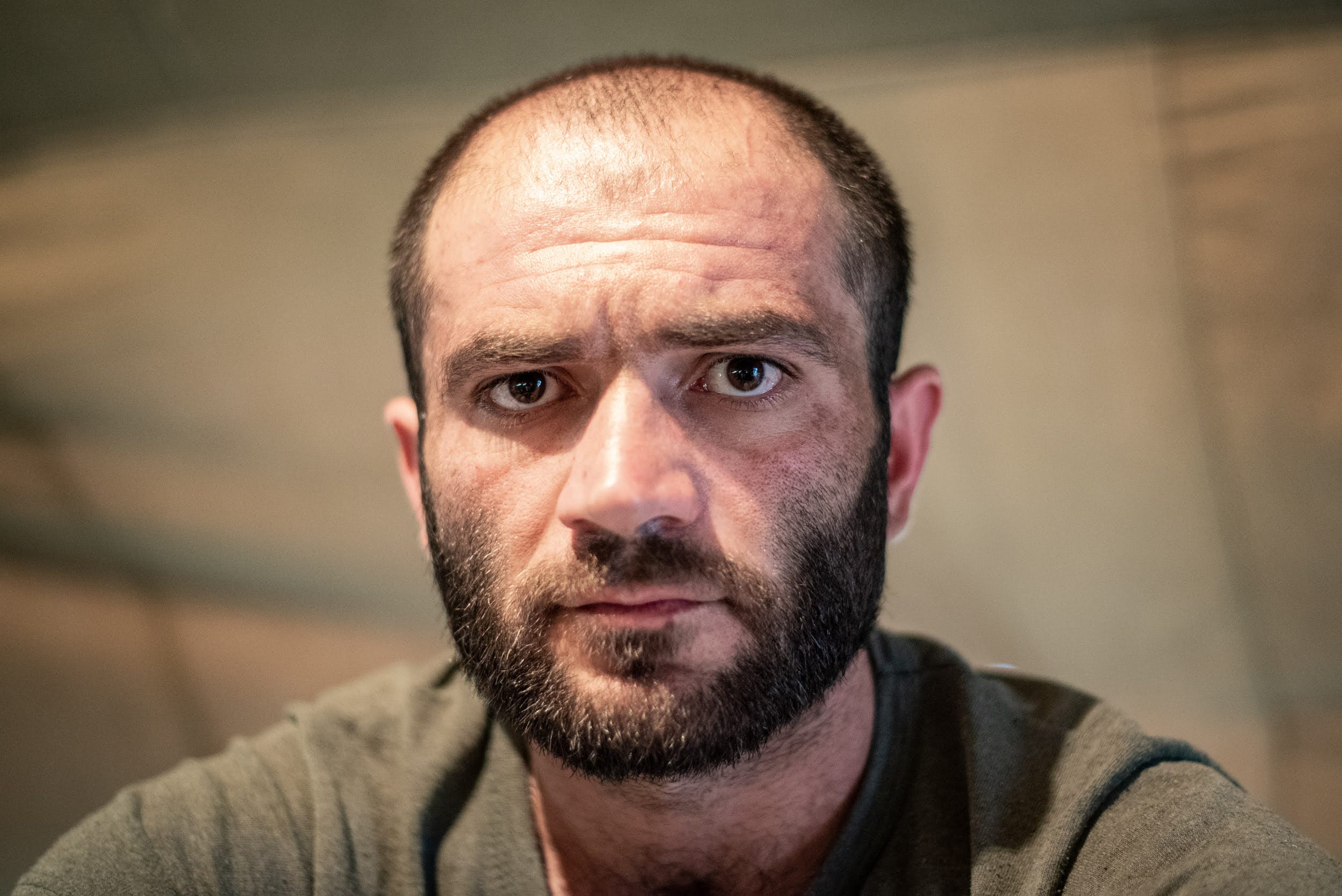
‘We want attention, we want what we deserve, we want safe conditions.’
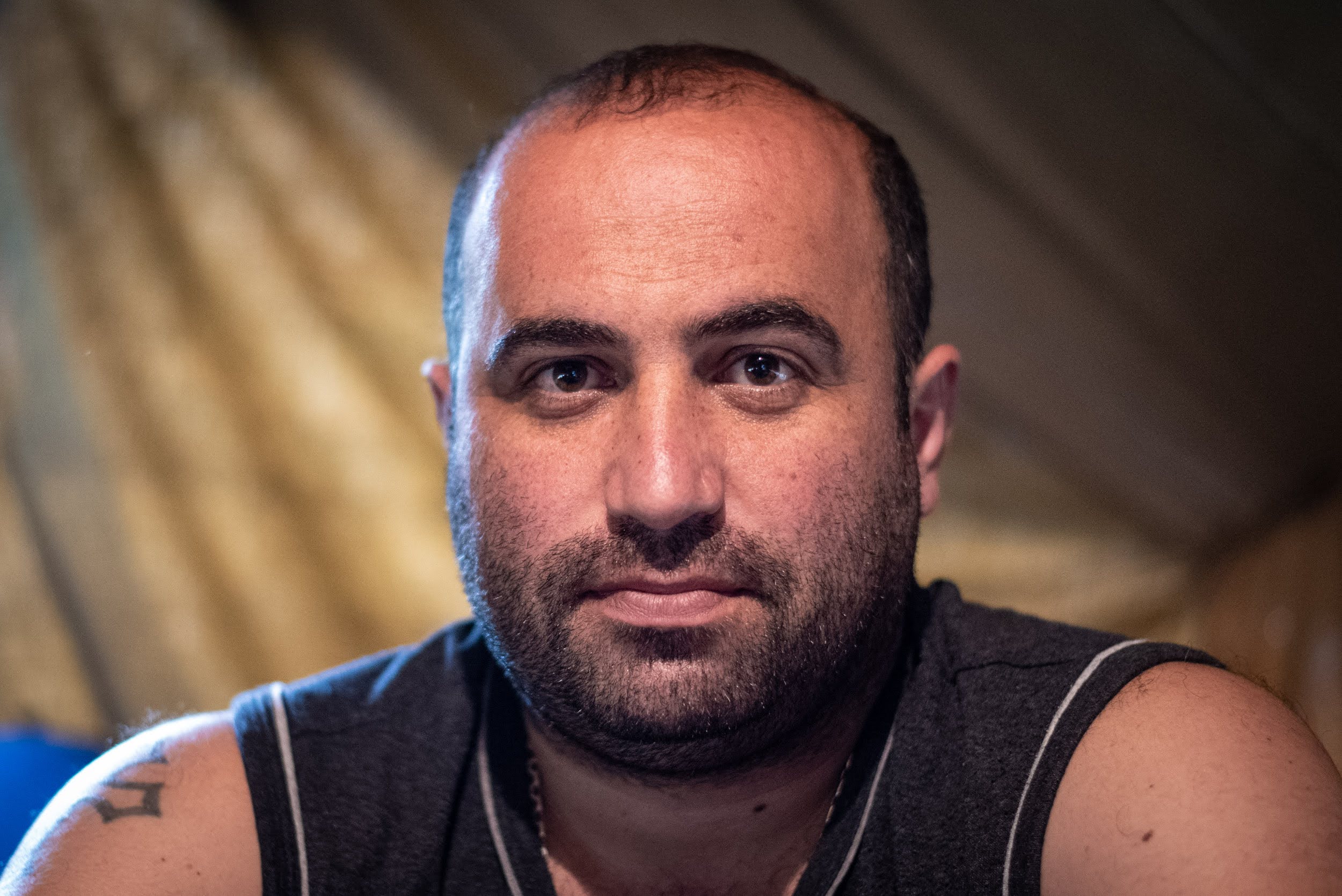
‘We want fair salaries for our hard work. Each mine worker deserves to be paid enough to feed their family.’
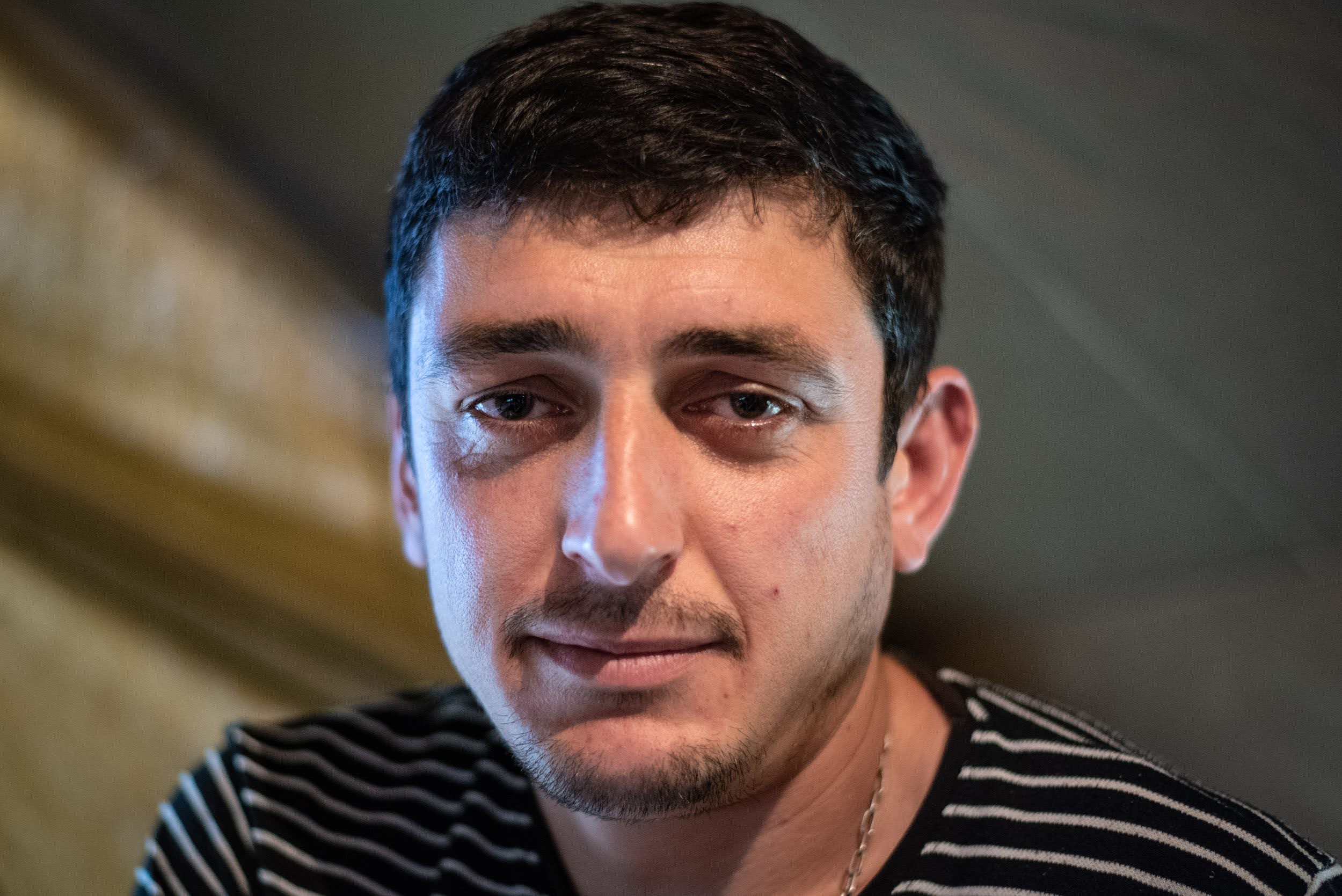
‘I have changed three mines and there were similar problems everywhere. They never pay attention to anything unless we protest, unless someone sews their mouth shut.’
‘This is not my first strike. Three years ago I was on a hunger strike for nine days. As a colleague said, the worst thing is that they don’t consider you valuable. When you go to work, you want to feel appreciated. I am a citizen of this country and I do my job and I want to be appreciated for it. We are ready to sew our eyes shut too, if they don’t meet our demands.’
The strike continues
On 18 June, the 13th day of the strike, one of the striking workers, Merab Saralidze, announced to workers and supporters gathered outside the Chiatura City Hall, that Giorgi Kupatadze, another striking worker, had sewed his eyes shut with needle and thread.
‘First, people went on hunger strike. Then one of them sewed his lips shut, when he couldn’t prove his truth to them. Now another one sewed his eyes shut, because he doesn’t want to watch this injustice anymore’, he said.
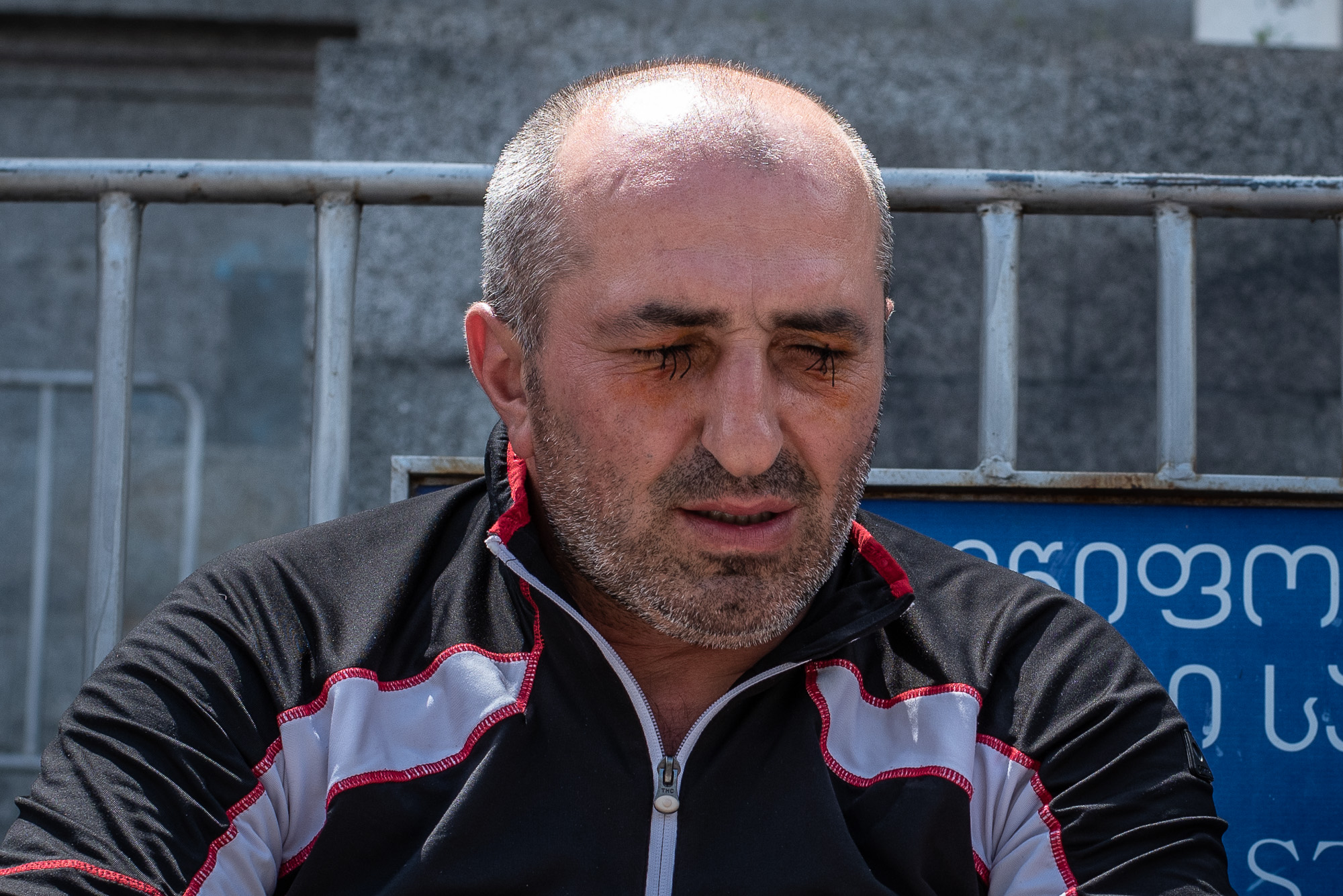
Following the news, Georgian Manganese issued a statement saying they were prepared to abolish the new ‘optimised’ work plans, and promising that salaries would rise by 5%.
However, the miners, who are demanding 40% increases, have not accepted the terms. The strike continues, with workers stating the mines would remain paralysed until their demands are met.
[Listen from OC Media: Podcast | Chiatura goes on strike]



